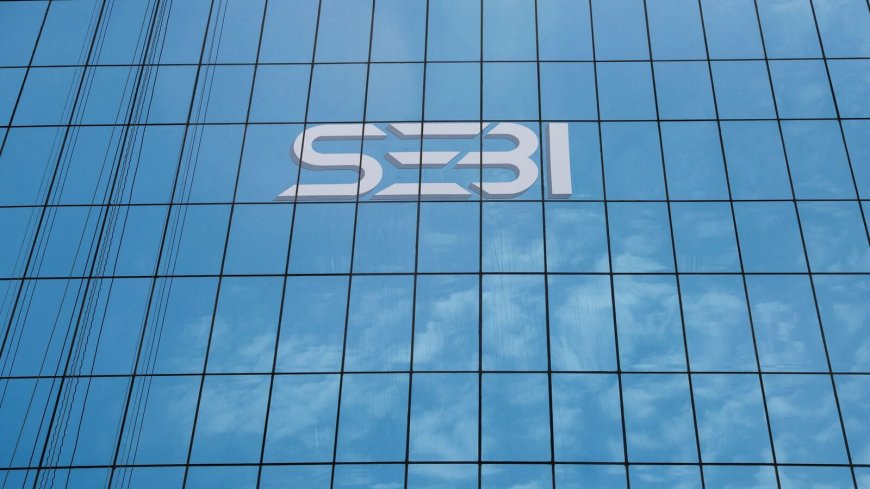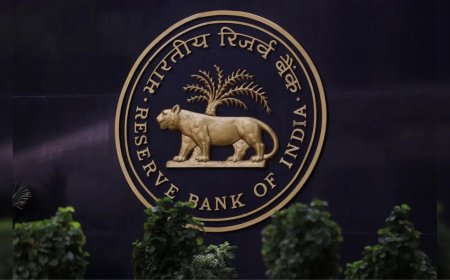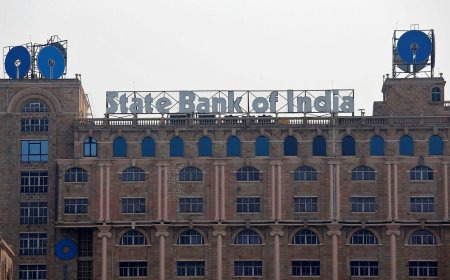Can SEBI truly level the playing field for retail traders?
SEBI has taken significant steps to protect and empower retail investors. But is it enough to create a level playing field in India’s fast-evolving stock market?

Introduction: The Retail Revolution and the Regulatory Response
In recent years, India’s financial markets have witnessed a dramatic rise in retail investor participation. From just over 4 crore demat accounts in 2020, the figure surged to more than 14 crore by mid-2025, signaling a seismic shift in market demographics. Amid this backdrop, the Securities and Exchange Board of India (SEBI) has been actively pushing for reforms to empower small investors, ensure transparency, and curb market manipulation. But the pressing question remains—can SEBI truly level the playing field for retail traders in an ecosystem traditionally dominated by institutions and seasoned insiders?
SEBI's Initiatives to Empower Retail Investors
SEBI, India’s capital markets regulator, has introduced a series of reforms aimed at protecting retail interests and democratizing access to financial markets. Key measures include:
-
T+1 settlement cycle: To improve liquidity and reduce systemic risk.
-
ASBA-like facility for secondary markets: Allowing funds to be blocked rather than debited during trade orders.
-
Increased transparency in Algo trading: Preventing unfair advantages to high-frequency and institutional traders.
-
Restrictions on ‘Finfluencer’ promotions: Curbing misinformation and pump-and-dump schemes across social media platforms.
-
Mandated disclosure norms: Enhancing clarity on mutual fund holdings, shareholding patterns, and insider trades.
These steps are commendable, but the complexity and pace of the market present constant challenges.
The Institutional Advantage: Retail Still on the Backfoot
Despite SEBI's strides, retail traders often find themselves at a structural disadvantage. Institutional players, equipped with real-time data, high-end analytics, and deep liquidity, can act swiftly and decisively—privileges that are often out of reach for average traders.
“Retail investors are often the last to know and the first to react,” says Pranjal Kamra, CEO of Finology Ventures. “Even with regulatory safeguards, the speed at which institutions move is incomparable to the tools available to retail investors.”
Additionally, many retail traders fall prey to misinformation, herd mentality, or complex derivatives instruments that they may not fully understand.
Algorithmic Trading and Unequal Access to Technology
SEBI has repeatedly highlighted concerns around the misuse of algorithmic trading. In 2022, a proposal to regulate unregulated APIs used by brokers and fintech platforms sparked debate. While SEBI backed away from a full ban, it emphasized the need for pre-validation and audit trails.
“Algo trading is a double-edged sword,” notes Nikhil Kamath, co-founder of Zerodha. “While it improves liquidity, it also skews the game in favor of those who can afford advanced strategies. SEBI’s challenge is to allow innovation without hurting fairness.”
Retail traders using basic mobile apps are at a severe disadvantage when trading against sophisticated bots executing thousands of trades per second.
Social Media Influence: The Rise and Risk of 'Finfluencers'
The democratization of financial information via YouTube, Instagram, and Twitter has created an army of 'finfluencers'. While many offer genuine financial education, others exploit naive investors with misleading stock tips, hidden sponsorships, and paid promotions.
SEBI recently proposed that registered investment advisors (RIAs) and research analysts must disclose financial ties and prohibit unregistered entities from giving stock recommendations. However, monitoring thousands of creators across platforms remains a daunting task.
“Retail traders today are trading more on Instagram reels than balance sheets,” warns Deepak Shenoy, Founder of Capitalmind. “Unless regulation tightens and digital literacy improves, these traders remain vulnerable.”
Market Education and Financial Literacy—The Missing Link
Arguably, the most significant gap isn’t regulatory but educational. A SEBI survey in 2024 revealed that nearly 60% of new traders in the F&O segment did not fully understand the risks involved. SEBI's Investor Protection and Education Fund (IPEF) has stepped up campaigns, but experts say more targeted efforts are required.
“Education must precede execution. Trading without literacy is like driving blindfolded,” states Radhika Gupta, MD & CEO, Edelweiss AMC. “SEBI’s role must include not just enforcing rules but enabling understanding.”
Market Dynamics Post-COVID: Rise of the Risk-Takers
The COVID-19 pandemic and the subsequent economic lockdowns brought a new breed of investors into the market—tech-savvy, risk-embracing, and often inexperienced. Many retail traders entered speculative segments like smallcaps, penny stocks, and options trading, seeking quick profits.
This rapid influx often exacerbated market volatility and increased the risk of manipulation. SEBI responded by tightening margin norms and increasing surveillance, especially in options trading, which saw exponential retail interest.
Investor Outlook: What More Can Be Done?
While SEBI has laid the groundwork, experts believe further structural changes are needed:
-
Real-time disclosures of large institutional trades.
-
Retail-focused fund-of-funds or AI-based advisory models for risk mitigation.
-
Tiered access to trading tools, giving retail users access to basic analytics for free or at subsidized rates.
-
Investor grievance redressal mechanisms with faster resolution timelines.
Long-term leveling will require a combination of regulation, technology access, and education. Retail traders must also bear responsibility for self-awareness and due diligence.
SEBI’s intent to level the playing field for retail traders is evident. However, the journey from regulation to realization is long and complex. In a market ecosystem where speed, knowledge, and access define the winners, mere rule-making won’t suffice. A comprehensive, sustained push involving market participants, educational institutions, brokers, and digital platforms is essential.
For now, SEBI has taken meaningful steps—but achieving a truly level playing field remains a work in progress.
What's Your Reaction?
 Like
0
Like
0
 Dislike
0
Dislike
0
 Love
0
Love
0
 Funny
0
Funny
0
 Angry
0
Angry
0
 Sad
0
Sad
0
 Wow
0
Wow
0













































































